11:51
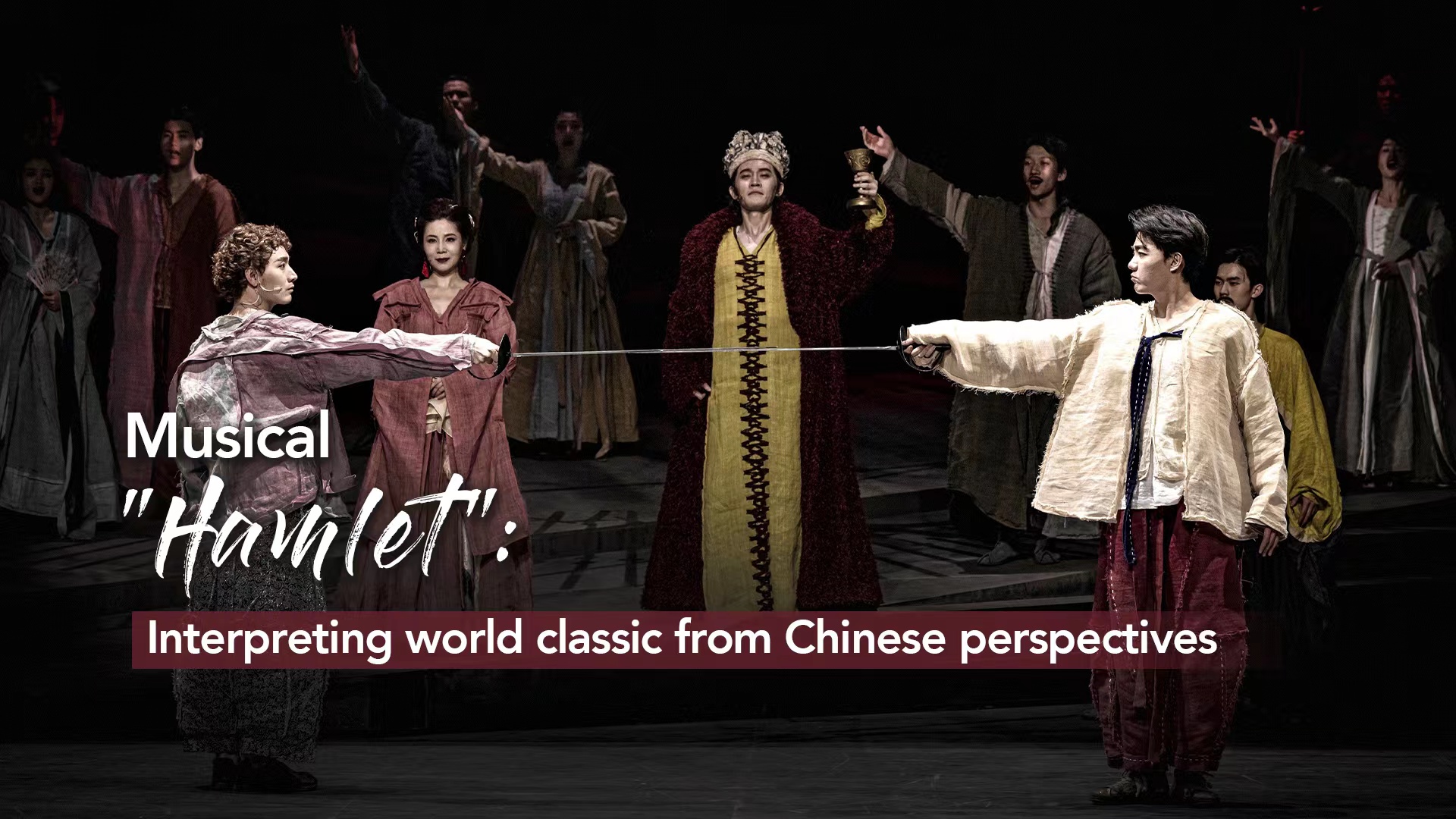
To be, or not to be, a question left by Hamlet from 400 years ago, now has a new interpretation.
English playwright, poet and actor William Shakespeare's renowned tragedy "Hamlet" was adapted into an original Chinese musical that premiered in Shanghai in May. Fusing oriental elements and perspectives, the musical interprets the Western classic in a new way, which has been well-received by Chinese audiences.
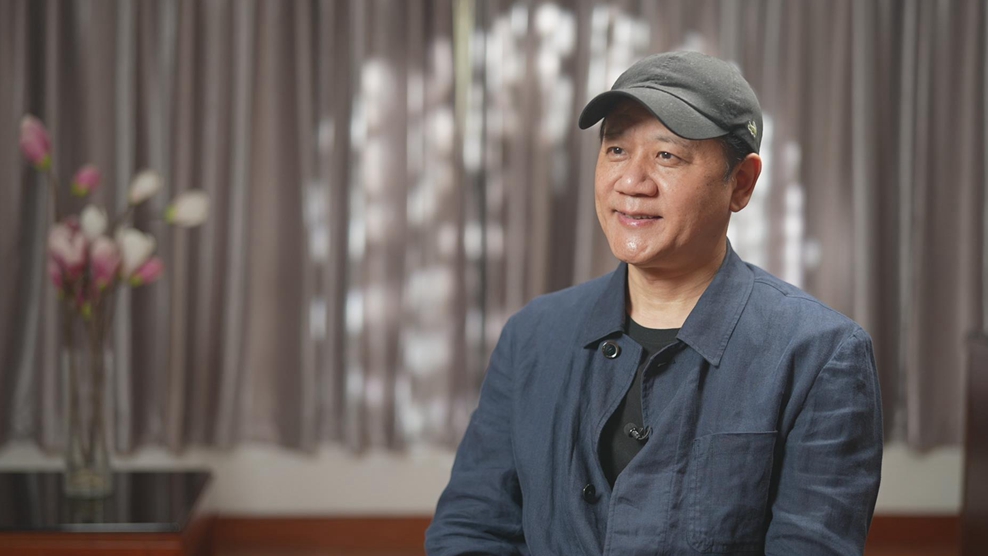
Xu Jun, director of muscial "Hamlet." /CGTN
Xu Jun, director of muscial "Hamlet." /CGTN
Xu Jun, director of the musical, told CGTN that he took some things away when he was doing the musical adaption.
"Musicals are written completely differently than plays. Its narrative is relatively focused because the establishment of musical images must be very distinct," he explained.
"It could last for six hours if every character had a musical image," said the director, adding that there are 14 characters removed in the musical version.
Xu admitted that it was very hard when he got down to the adaption, but also said the harder it is, the more it may spark new ideas in him.
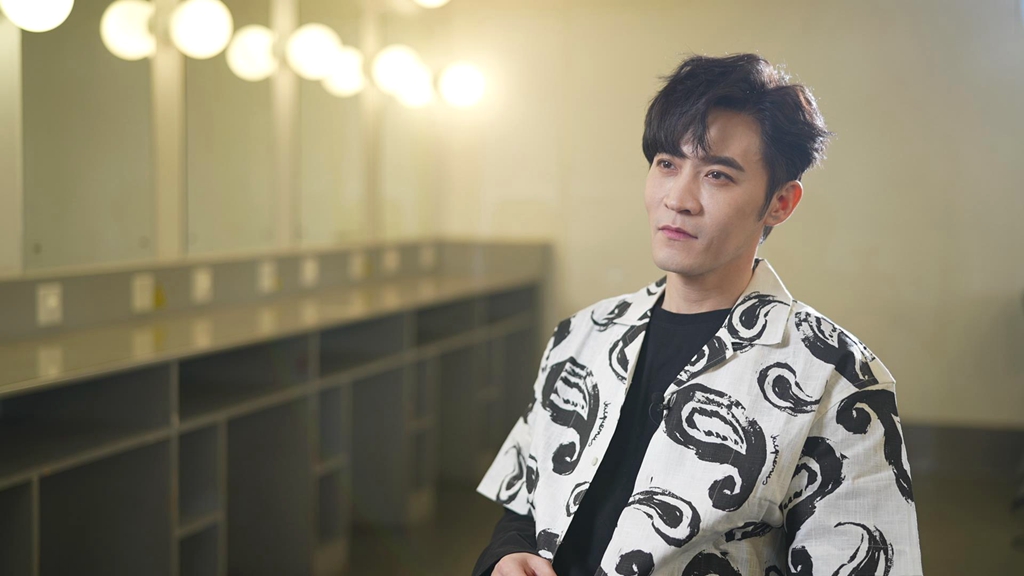
Zheng Qiyuan, the actor of King Claudius in musical "Hamlet." /CGTN
Zheng Qiyuan, the actor of King Claudius in musical "Hamlet." /CGTN
"I found out that King Claudius is a hidden thread. He is like a vortex. He is in the center, embroiling Hamlet, Ophelia and even Queen Gertrude in it," said the director, expressing his excitement about the change in the script.
"The proportion of Claudius may be relatively less important in other productions of 'Hamlet,'" Zheng Qiyuan, the actor who played King Claudius, told CGTN. "But our musical intentionally uses Claudius and Hamlet as conflicting opposites."
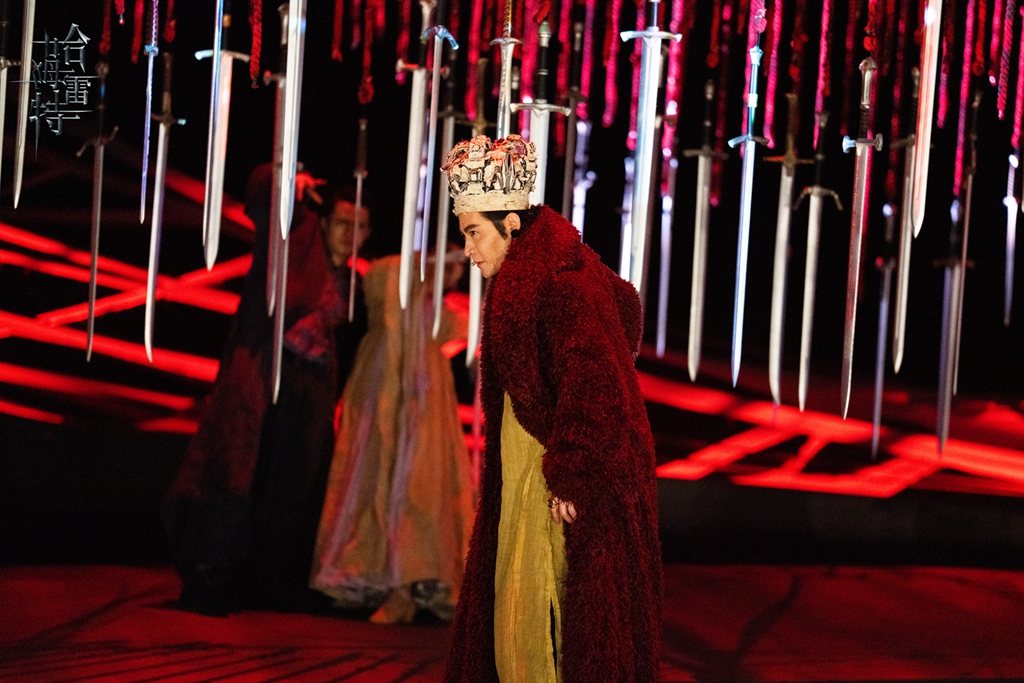
Zheng Qiyuan as King Claudius in musical "Hamlet." /Xujun Drama & Musical
Zheng Qiyuan as King Claudius in musical "Hamlet." /Xujun Drama & Musical
To Zheng, the character is well-rounded.
"He is evil, so-called evil, but also soft," said the actor, referring to Claudius' love for Gertrude and sympathy for Ophelia in the musical.
"The different sides make this character more interesting, complicated and entertaining," he said.
'To be, or not to be' in music
The well-known "To be, or not to be" monologue is embedded into a song named "Query."
"The song now has a sense of nobility," said Peter Kam, composer of the musical, adding that there have been comments on the internet that this song should focus more on the sense of torment.
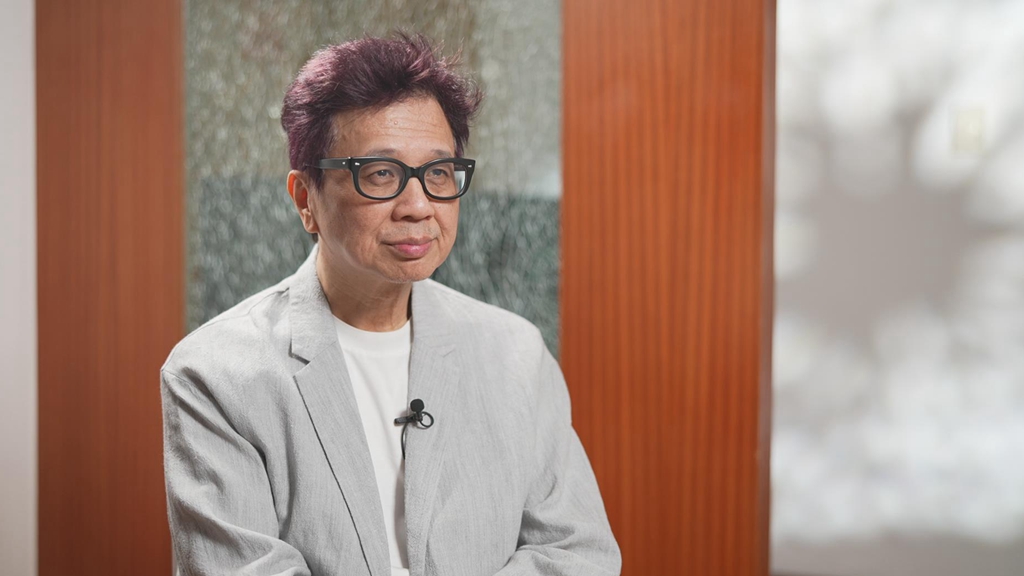
Peter Kam, composer of muscial "Hamlet." /CGTN
Peter Kam, composer of muscial "Hamlet." /CGTN
Kam wants audiences to leave the theater with a great thought rather than torment.
"Hamlet found his destiny of bringing back justice. I think this is the enlightenment he left for us after 400 years," he said. "What we're really talking about is whether we live lives that are true to ourselves."

Jin Shengquan, the actor of Hamlet in musical "Hamlet." /CGTN
Jin Shengquan, the actor of Hamlet in musical "Hamlet." /CGTN
"Every line of the lyrics is a question," said Jin Shengquan, the actor who played Hamlet. He mentioned two lines from the lyrics as examples – "Awake, maybe dreaming?" and "What's the difference?"
"My understanding is that he made a decision, which is 'not to be.' After he made the decision, it's more natural for him to carry out his plan," the actor explained.
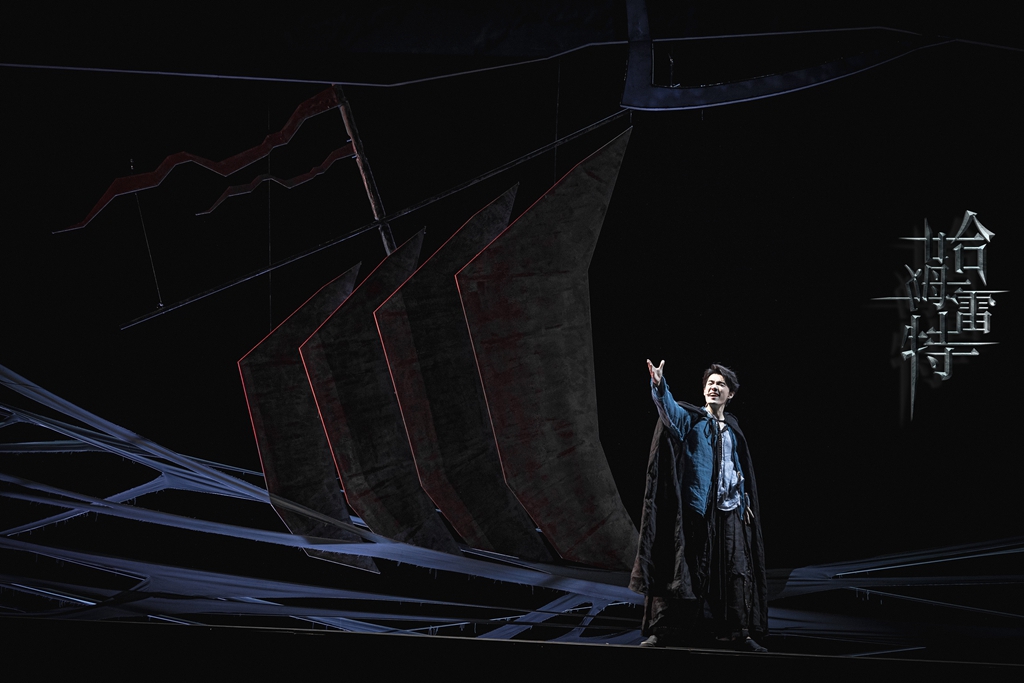
Jin Shengquan as Hamlet in musical "Hamlet." /Xujun Drama & Musical
Jin Shengquan as Hamlet in musical "Hamlet." /Xujun Drama & Musical
Kam created the music under the Western religious background. He told CGTN that there's one character that's rarely mentioned in other productions of "Hamlet."
"The character is God," said the composer.
Kam put three low-pitch sounds at the very beginning of the musical as "the wrath of God."
"Under God's morality and view, what humans do is foolish, and can't escape the principle of cause and effect," he said.
Expressing cultural confidence in Chinese adaption
Oriental elements can be found in different aspects of the musical, from costumes to stage design.
The director told CGTN that the costumes were made of flax fabric, which is more commonly used in Asian countries. "This material is very stiff, making the costumes puffy, so they look similar to Western court gowns," said Xu, adding that a fusion of Eastern and Western cultures can be seen in the costume design.
China's xieyi style is also emphasized on the stage. The xieyi style, or freehand style, is a form of Chinese ink painting that features a reduction in detailed brushstrokes. It describes a philosophy of Chinese culture to emphasize freedom, spirituality, individuality and expressiveness.
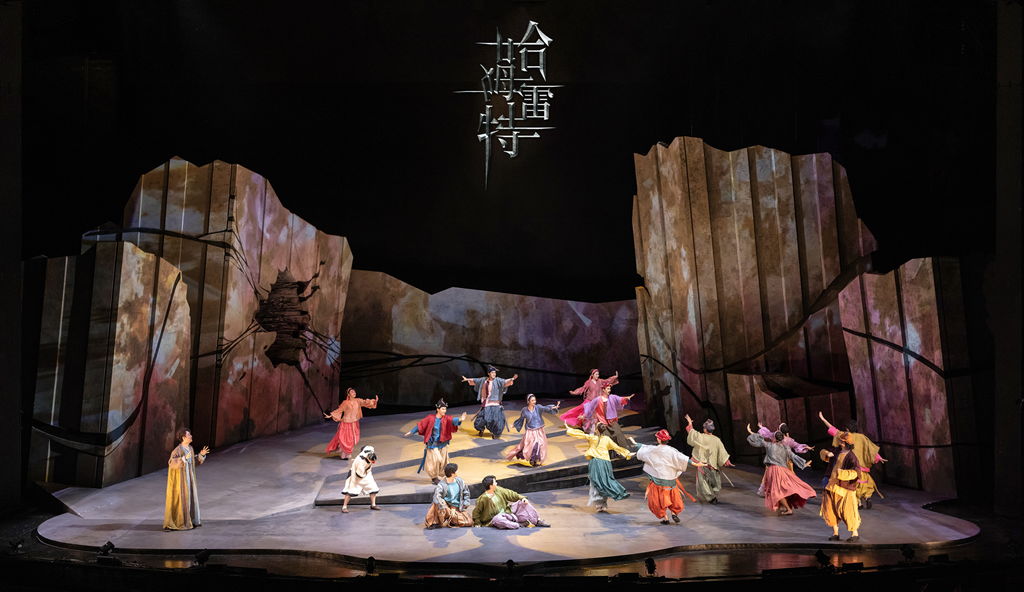
China's xieyi style is emphasized in musical "Hamlet." /Xujun Drama & Musical
China's xieyi style is emphasized in musical "Hamlet." /Xujun Drama & Musical
"When we integrate the xieyi style when there is singing and dancing, I think it's possible that we could establish a path of musicals with Chinese characteristics," Xu said, noting that this could be a route for Chinese artists to further explore, especially for musicals.
To Jin, "Hamlet" is a work with inclusiveness, possibility and diversity, which makes it possible for international artists to use the common aspects from the tragedy and localize them into their own culture.
"When Shakespeare wrote this story, he left space for every character and their lines," said Jin. "This is why we say 'There are a thousand Hamlets in a thousand people's eyes.'"
"The important thing is to understand our culture and express the core of the culture through different elements," Jin emphasized.
"Characters from different cultural backgrounds react differently to one particular thing, and the lyrics they sing also vary based on their cultural backgrounds," said Kam.
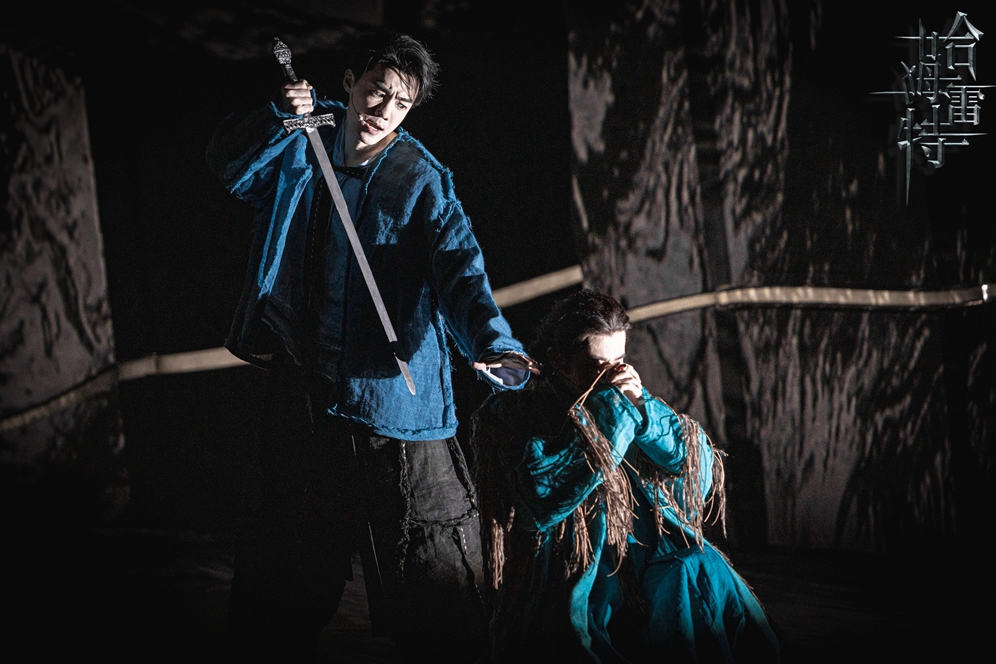
A stage photo of musical "Hamlet." /Xujun Drama & Musical
A stage photo of musical "Hamlet." /Xujun Drama & Musical
The composer said it's important to understand the universal culture in addition to understating one's own culture.
"The cultural confidence is that we are confident that our culture is able to communicate with the world," Kam said.
Zheng sees the world classic as a work about life and death, which is a topic that's been considered by Chinese people since ancient times.
"'Hamlet' has been staged by so many countries around the world, and I think every country uses its culture to interpret questions about life and death," he said, adding that it's reasonable for Chinese artists to interpret "To be, or not to be" from their perspective.
According to Zheng, cultural confidence brings artists a lot of creative desires and inspiration.
"I think now is a really good time," Zheng said. "Because the environment is particularly good, we have the ability, whether it's economic or cultural, to produce both Western and Eastern themes through the way we want to express them."
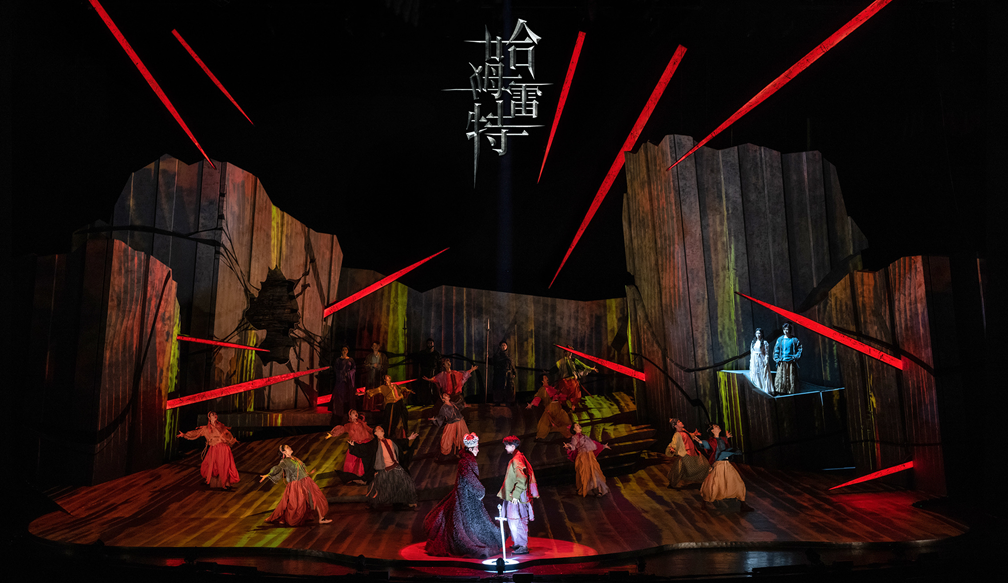
A stage photo of musical "Hamlet." /Xujun Drama & Musical
A stage photo of musical "Hamlet." /Xujun Drama & Musical
As foreign musical productions continue to be popular in China in recent years, original Chinese musicals are also gaining space in the market. Xu called on the industry to put in more efforts on original works.
"We must have a sense of responsibility, consciousness and mission to devote our minds and strength to original Chinese musicals," said the director. "In this way, our original Chinese musicals can do better."
(CGTN's Zhao Yuxiang also contributed to this story)
Videographer: Li Bancheng
Video editor: Guo Meiping
Cover image: Yu Peng